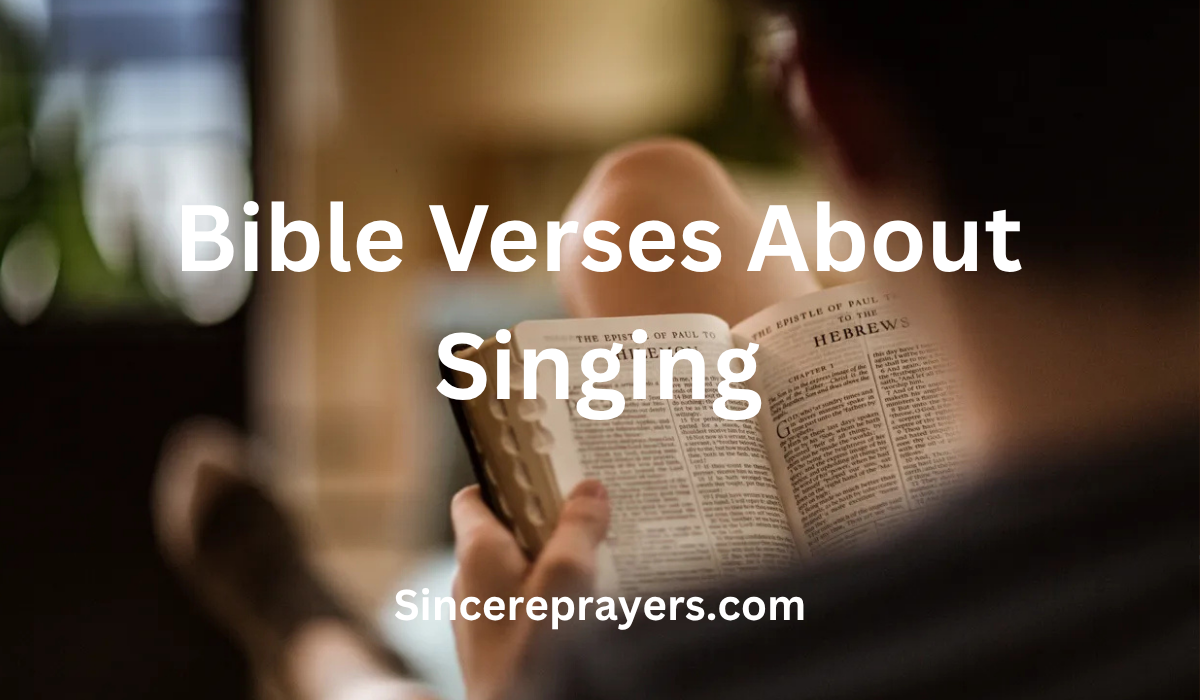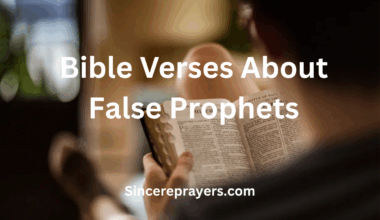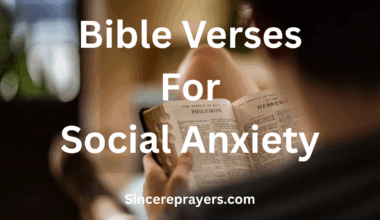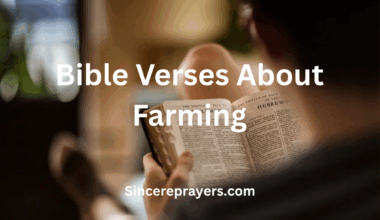Singing has always been an essential form of worship in the life of believers. From the joyful psalms of David to the spiritual songs of the early church, Scripture emphasizes music as a powerful way to praise God, express gratitude, and strengthen faith. Singing is more than just sound; it is a spiritual exercise that aligns the heart with God’s presence and opens channels for divine inspiration. Through music, believers can communicate emotions that words alone may fail to convey, creating a sacred bridge between the human soul and the Divine.
In moments of celebration, singing magnifies God’s glory and acknowledges His goodness. The Bible portrays singing not only as an individual act but also as a communal expression of faith. When the Israelites crossed the Red Sea, they sang together, proclaiming God’s mighty power and deliverance. These accounts demonstrate that singing strengthens unity among believers, encouraging each other to remember God’s faithfulness. Joyful songs lift the spirit, transform moods, and serve as testimony to the wonders God has performed in our lives.

Singing is also a vital tool for comfort and healing. The psalmists frequently combined melodies with prayers, offering solace amid trials and tribulations. When words fail to capture pain, sorrow, or hope, singing becomes a language of the heart. Through song, believers release burdens, embrace forgiveness, and renew their strength. Scripture encourages us to sing with understanding, as songs rooted in Scripture inspire faith and remind us of God’s enduring promises. Music, therefore, is a divine instrument that nourishes both soul and spirit.
Finally, singing is an act of spiritual warfare. In the Bible, music often precedes victory, as seen in the walls of Jericho or David’s anointed worship. Songs summon courage, invite God’s presence, and repel fear or doubt. When believers sing, they declare truth over circumstances, anchoring their hope in God’s sovereignty. Therefore, engaging in heartfelt singing is not merely an art but a spiritual discipline that fosters intimacy with God, uplifts communities, and strengthens faith. These 35 powerful Bible verses about singing will inspire you to embrace worship, rejoice in the Lord, and experience the transformative power of spiritual melody.
35 Amazing Bible Verses About Singing in 2025
1. Psalm 95:1
“Come, let us sing for joy to the Lord; let us shout aloud to the Rock of our salvation.”
This verse invites believers to approach God with exuberant joy and vocal praise. Singing for the Lord is not merely an act of habit but an expression of gratitude for His salvation. By calling God “the Rock,” the psalmist emphasizes stability, protection, and enduring strength. When we sing, we acknowledge God as our foundation, finding joy and confidence in His unchanging nature. This encourages communal worship where voices unite to exalt His name.
2. Psalm 100:1-2
“Shout for joy to the Lord, all the earth. Worship the Lord with gladness; come before him with joyful songs.”
Here, Scripture highlights both the universality and intentionality of worship through song. All the earth is called to respond, reminding us that singing is a global expression of God’s glory. The emphasis on gladness and joy reflects the heart attitude required for authentic worship. Singing with joy transforms ordinary gatherings into celebrations of God’s presence, reinforcing that true worship is a deliberate offering of our spirit, mind, and voice to Him.
3. Colossians 3:16
“Let the message of Christ dwell among you richly as you teach and admonish one another with all wisdom through psalms, hymns, and songs from the Spirit, singing to God with gratitude in your hearts.”
Paul underscores the spiritual depth of singing, linking it to teaching and edification. Songs are more than melodies—they are vehicles of wisdom, instruction, and encouragement. When we sing from the Spirit, gratitude permeates our hearts, transforming worship into both personal devotion and communal growth. Singing becomes an act of spiritual formation, shaping character, fostering unity, and reinforcing Christ’s message in everyday life.
4. Ephesians 5:19
“Speaking to one another with psalms, hymns, and songs from the Spirit. Sing and make music from your heart to the Lord.”
This verse emphasizes authenticity in worship—music should flow from the heart, not obligation. Singing is relational, connecting believers to God and to each other. Spirit-led songs encourage heartfelt devotion and spiritual sensitivity, reminding us that music is both a dialogue with God and a conduit for blessing others. Engaging in such worship nourishes the soul and strengthens the faith of the entire community.
5. Psalm 147:1
“Praise the Lord. How good it is to sing praises to our God, how pleasant and fitting to praise him!”
This verse reminds us that singing is not only a duty but a delight. God delights in our worship, and joyful songs are fitting expressions of gratitude. Singing affirms God’s goodness, builds spiritual sensitivity, and uplifts the soul. It also cultivates an atmosphere of reverence and pleasure in God’s presence. By singing sincerely, believers align their hearts with God’s nature, expressing praise in ways that honor Him and strengthen faith.
6. Psalm 33:3
“Sing to him a new song; play skillfully, and shout for joy.”
A “new song” symbolizes fresh expressions of worship, reflecting ongoing encounters with God. Singing skillfully combines intention, creativity, and joy, enhancing the worship experience. This verse encourages believers to approach God with innovation and heartfelt celebration, not merely repetition. New songs remind us of God’s continual work in our lives, inviting renewed gratitude. Through music, we communicate our evolving faith, expressing joy, devotion, and the dynamic nature of God’s presence in our lives.
7. Isaiah 12:5
“Sing to the Lord, for he has done glorious things; let this be known to all the world.”
This verse emphasizes that singing is an act of testimony. Believers declare God’s mighty works through song, making His glory known publicly. Singing becomes both proclamation and praise, demonstrating gratitude while inspiring faith in others. Highlighting God’s deeds fosters a culture of remembrance and worship. Through heartfelt melodies, Christians celebrate divine interventions, victories, and blessings, inviting others to join in acknowledging God’s power and faithfulness across communities and generations.
8. Psalm 40:3
“He put a new song in my mouth, a hymn of praise to our God. Many will see and fear the Lord and put their trust in him.”
Here, God initiates the song, transforming worship into divine inspiration. A “new song” reflects personal renewal and spiritual breakthroughs. Singing inspired by God not only glorifies Him but also impacts observers, drawing them toward faith. Music, in this sense, becomes a witness, spreading hope and reverence. When believers allow God to shape their songs, they share experiences of grace and redemption, turning personal praise into a communal testimony that strengthens others’ trust in the Lord.
9. 1 Chronicles 16:9
“Sing to him, sing praise to him; tell of all his wonderful acts.”
This verse encourages storytelling through song. Singing allows believers to recount God’s deeds, making His faithfulness tangible. Praise and testimony become intertwined as worshippers celebrate victories, mercy, and blessings. Songs narrate God’s actions, creating remembrance and gratitude in hearts. By vocalizing divine wonders, believers inspire others, cultivate faith, and ensure that generations recognize God’s sovereignty. Singing, therefore, is both worship and proclamation, reinforcing the connection between memory, testimony, and praise.
10. Psalm 71:23
“My lips will shout for joy when I sing praise to you—I whom you have delivered.”
Deliverance prompts spontaneous expression, and this verse highlights joy in vocal praise. Singing arises naturally from recognition of God’s salvation and intervention. It is a heartfelt declaration of gratitude that transforms personal experience into worship. As believers acknowledge God’s mercy, their songs reflect both relief and celebration. Singing becomes a testimony of redemption, inspiring others and affirming that joyous praise flows from a life touched by God’s saving power, demonstrating the intimate connection between deliverance and musical worship.
11. Psalm 92:1-2
“It is good to praise the Lord and make music to your name, O Most High, proclaiming your love in the morning and your faithfulness at night.”
This verse reminds believers that praise is both timely and continual. Singing at morning and evening symbolizes the integration of worship into daily life. Music expresses gratitude for God’s steadfast love and unwavering faithfulness. Regular songs of praise cultivate spiritual mindfulness, reminding us of His presence throughout the day. By establishing a rhythm of worship, believers align their hearts with God’s mercy, transforming ordinary routines into acts of spiritual devotion.
12. Psalm 108:1
“My heart, O God, is steadfast; I will sing and make music with all my soul.”
Singing from a steadfast heart signifies sincerity and full engagement in worship. This verse emphasizes total commitment—music flows from soul-deep devotion. True worship is not casual; it demands intention, consistency, and passion. When believers sing with complete devotion, they cultivate spiritual resilience, reinforcing faith in God’s enduring presence. Music becomes a reflection of internal steadfastness, allowing the heart’s devotion to resonate externally and inspire both personal growth and communal encouragement.
13. Psalm 134:2
“Lift up your hands in the sanctuary and praise the Lord.”
Here, worship combines both physical action and vocal expression. Singing and lifted hands signify total surrender and reverence. Music engages the body and spirit, creating a holistic worship experience. Public and communal singing in sacred spaces strengthens fellowship and magnifies God’s glory. This verse encourages believers to approach worship fully—mind, body, and heart—so that songs are not just melodies but profound acts of devotion that honor God and invite His presence.
14. Psalm 144:9
“I will sing a new song to you, my God; upon a ten-stringed harp I will play to you.”
A “new song” symbolizes fresh praise and personal renewal in God’s presence. Instruments enhance worship, illustrating the harmony between creativity and devotion. Singing anew reflects ongoing experiences of God’s grace, blessing, and guidance. By combining skill and heartfelt praise, believers turn worship into artful testimony. Music communicates gratitude, awe, and joy, reminding us that each new season of life invites renewed songs that celebrate God’s unending faithfulness.
15. Psalm 149:1
“Praise the Lord. Sing to the Lord a new song, his praise in the assembly of his faithful people.”
This verse highlights communal worship, emphasizing the power of collective praise. Singing in assembly strengthens faith, fosters unity, and magnifies God’s glory through shared voices. A “new song” inspires creativity, expressing unique encounters with God. Public worship through song becomes a testimony, inspiring others to join in praise. Together, believers celebrate God’s faithfulness, forming a vibrant, living expression of worship that blesses both participants and observers.
16. Psalm 150:1-2
“Praise the Lord. Praise God in his sanctuary; praise him in his mighty heavens. Praise him for his acts of power; praise him for his surpassing greatness.”
This passage encompasses the fullness of praise—song, instrument, and recognition of God’s power. Singing acknowledges His mighty acts and transcendent greatness. Worship is holistic, incorporating words, melody, and spiritual reflection. Music becomes a channel to magnify God’s power, inspire awe, and deepen faith. Believers are called to celebrate divine acts continually, ensuring that praise is not occasional but a lifestyle that communicates reverence, joy, and devotion.
17. Isaiah 42:10
“Sing to the Lord a new song, his praise from the ends of the earth, you who go down to the sea, and all that is in it, you islands, and all who live in them.”
This verse calls for universal praise, showing that singing transcends boundaries. All creation is invited to celebrate God’s greatness. Singing becomes an act of global testimony, acknowledging His majesty over every part of the earth. Believers are reminded that worship is not limited to personal devotion but includes public proclamation. Songs extend God’s glory beyond the sanctuary, uniting hearts in reverence and encouraging others to recognize His sovereignty.
18. Jeremiah 31:7
“For I will restore the fortunes of the land as they were before, says the Lord. Sing aloud with joy for Jacob, and raise shouts for the chief of the nations.”
Singing expresses joy in God’s restoration and faithfulness. This verse encourages believers to celebrate divine intervention, victories, and blessings with heartfelt songs. Singing is a natural response to God’s promises fulfilled. Through melody, gratitude is amplified and testimony shared. Songs of restoration inspire hope, reminding communities of God’s enduring love. Believers are invited to rejoice vocally, ensuring that praise reflects both personal gratitude and collective rejoicing in His faithfulness.
19. Zephaniah 3:17
“The Lord your God is with you, the Mighty Warrior who saves. He will take great delight in you; in his love he will no longer rebuke you, but will rejoice over you with singing.”
This verse reveals that God Himself rejoices with singing over His people. Worship becomes relational—our songs echo God’s delight. Understanding that the Creator sings over us inspires confidence, joy, and intimacy in worship. Singing is both a response and a reflection of God’s love. Believers participate in a divine cycle of praise, where human voices harmonize with God’s joy, deepening connection and affirming His loving presence in every circumstance.
20. Matthew 26:30
“When they had sung a hymn, they went out to the Mount of Olives.”
Even in moments preceding trials, Jesus and His disciples sang hymns, demonstrating the spiritual discipline of worship. Singing sustains faith through uncertainty and strengthens resolve. Worship becomes a source of courage and focus, aligning hearts with God’s purpose. This verse encourages believers to maintain praise in challenging times. Hymns carry hope, foster resilience, and remind us that worship is not seasonal but a constant practice, bringing peace and strength in every circumstance.
21. Acts 16:25
“About midnight Paul and Silas were praying and singing hymns to God, and the prisoners were listening to them.”
Singing becomes a testimony even in adversity. Paul and Silas praised God in chains, demonstrating faith, courage, and reliance on divine power. Their songs created an atmosphere that witnessed God’s presence and led to miraculous intervention. Worship through song transcends circumstance, affecting not only the worshippers but also those who hear it. Singing in hardship strengthens faith, encourages others, and proclaims God’s sovereignty over every situation.
22. Hebrews 2:12
“I will declare your name to my brothers and sisters; in the assembly I will sing your praises.”
Singing is both personal devotion and public declaration. By praising God in assembly, believers participate in communal worship that encourages faith, unity, and spiritual growth. Songs express testimony, proclaiming God’s name and works to others. This verse underscores that worship is relational, building bonds and inspiring collective reverence. Singing together magnifies God’s glory and reinforces the impact of shared faith in the community.
23. James 5:13
“Is anyone among you in trouble? Let them pray. Is anyone happy? Let them sing songs of praise.”
This verse links life circumstances with appropriate spiritual expression. Singing is the natural response to joy and gratitude. Worship through song amplifies happiness, acknowledging God’s blessings and presence in our lives. Believers are encouraged to integrate music into emotional experiences, making it a holistic form of devotion. Singing in happiness transforms ordinary moments into acts of worship, shaping attitude, inspiring others, and reminding us of God’s continuous goodness.
24. Revelation 5:9
“And they sang a new song, saying: ‘You are worthy to take the scroll and to open its seals, because you were slain, and with your blood you purchased for God persons from every tribe and language and people and nation.’”
Heavenly singing celebrates God’s redemptive power through Christ. A “new song” expresses awe and recognition of salvation for all nations. Worship here transcends earthly limits, reminding believers of God’s universal plan and the eternal significance of praise. Singing communicates triumph, gratitude, and honor. As Christians sing, they participate spiritually in this heavenly chorus, connecting earthly worship with divine celebration and aligning hearts with God’s eternal narrative.
25. Revelation 14:3
“And they sang a new song before the throne of God and before the four living creatures and the elders. No one could learn the song except the 144,000 who had been redeemed from the earth.”
This verse shows singing as a sacred, spiritual act reserved for those redeemed by God. Worship becomes a deeply personal yet cosmic experience, symbolizing purity, devotion, and salvation. Songs express eternal gratitude and recognition of divine sovereignty. Believers are reminded that worship is a treasure of intimacy with God, and singing reflects both celebration and reverence. Music communicates spiritual truths that transcend ordinary understanding, connecting the redeemed to God’s eternal presence.
26. Psalm 96:1
“Sing to the Lord a new song; sing to the Lord, all the earth.”
This verse invites all creation to engage in fresh praise. Singing a “new song” reflects continual renewal and responsiveness to God’s work. It encourages believers to celebrate His glory daily and creatively. Worship is not static; each song can reflect new experiences of God’s grace, mercy, and faithfulness. Through music, believers testify to God’s power, inspiring others to join in collective adoration while fostering personal spiritual growth.
27. Psalm 98:4
“Shout for joy to the Lord, all the earth, burst into jubilant song with music.”
Here, joyful singing is emphasized as an exuberant, global expression of worship. Music amplifies celebration, reflecting the magnitude of God’s deeds. Believers are encouraged to worship with energy, creativity, and enthusiasm. Songs not only honor God but also inspire others, spreading joy and reverence across communities. Singing becomes both proclamation and expression of gratitude, reinforcing that praise is a lively, active, and communal spiritual practice.
28. Psalm 147:7
“Sing to the Lord with grateful praise; make music to our God on the harp.”
This verse connects singing with gratitude, illustrating that worship is an acknowledgment of God’s blessings. Instruments enhance the depth and beauty of praise, creating a holistic worship experience. Music communicates heartfelt thanks while fostering reflection on God’s goodness. By singing with gratitude, believers cultivate joy, humility, and reverence. Songs become both personal devotion and public testimony, inviting others to witness and participate in the celebration of God’s grace.
29. 1 Chronicles 25:1
“David, together with the commanders of the army, set apart some of the sons of Asaph, Heman, and Jeduthun for the ministry of prophesying, accompanied by harps, lyres, and cymbals.”
Music in worship was institutionalized under David, showing its spiritual significance and organization. Singing combined with instruments became a prophetic ministry, connecting music to divine revelation. Worship through song strengthens faith, provides spiritual guidance, and inspires the community. This verse highlights the intentionality of music in honoring God, illustrating that both skill and devotion are vital. Songs are not only praise but also a channel for spiritual insight and encouragement.
30. Nehemiah 12:46
“For long ago, in the days of David and Asaph, there had been directors of the music and there had been songs of praise and thanksgiving to God.”
This verse emphasizes continuity in worship through song. Singing connects generations, linking past, present, and future believers in praise. Music and gratitude are deeply intertwined, shaping community worship and spiritual memory. By participating in established traditions of song, believers honor God’s faithfulness across generations. Singing is both personal devotion and a communal bridge, fostering unity, gratitude, and enduring celebration of God’s enduring love and provision.
31. Exodus 15:1
“Then Moses and the Israelites sang this song to the Lord: ‘I will sing to the Lord, for he is highly exalted. Both horse and driver he has hurled into the sea.’”
This famous “Song of the Sea” celebrates God’s mighty deliverance of Israel. Singing transforms victory into worship, turning historical events into testimony. Music allows believers to remember God’s power and faithfulness, strengthening faith and inspiring future generations. Songs of triumph proclaim God’s sovereignty and invite gratitude. Worship through music commemorates divine acts, fostering remembrance, joy, and confidence in God’s continued guidance and protection.
32. Judges 5:3
“Hear this, you kings! Listen, you rulers! I, even I, will sing to the Lord; I will praise the Lord, the God of Israel, in song.”
Deborah’s song illustrates singing as both praise and prophetic declaration. Music communicates triumph, leadership, and testimony. Songs inspire courage, instruct communities, and honor God’s power in delivering His people. Singing becomes a vehicle for storytelling, reflection, and encouragement. Worship through song motivates faith, communicates gratitude, and strengthens communal bonds, demonstrating the multidimensional role of music in celebrating God’s authority and works.
33. 2 Chronicles 5:13
“The trumpeters and singers joined in unison, as with one voice, to give praise and thanks to the Lord.”
Unified singing magnifies God’s glory, illustrating the power of harmony in worship. Music becomes a shared spiritual experience that strengthens faith and community. Collective praise demonstrates unity, devotion, and intentionality in worship. Singing together amplifies the impact of music, creating an atmosphere filled with gratitude and reverence. Worship through song, therefore, fosters both individual and communal connection with God, enriching spiritual life through collaborative praise.
34. Revelation 15:3
“They sang the song of God’s servant Moses and of the Lamb: ‘Great and marvelous are your deeds, Lord God Almighty.’”
This heavenly song celebrates God’s wondrous works and redemptive power. Singing connects earthly worship with divine praise, offering a vision of eternal gratitude. Believers join in remembrance of God’s mighty deeds, echoing the faithful songs of the past. Music communicates awe, reverence, and joy, encouraging Christians to praise God continuously. Singing becomes both testimony and spiritual alignment with the eternal chorus of heaven.
35. Psalm 28:7
“The Lord is my strength and my shield; my heart trusts in him, and he helps me. My heart leaps for joy, and with my song I praise him.”
This verse links trust, strength, and singing in worship. Music becomes a natural expression of joy and reliance on God. Praise through song reflects gratitude, personal devotion, and acknowledgment of divine protection. Singing reinforces faith, uplifts the spirit, and communicates trust in God’s power. Worship through music celebrates His guidance and provision, turning gratitude into melody and testimony, and inspiring believers to live in continual joy and devotion.
Conclusion
Singing is an essential expression of faith that touches both the believer and the world around them. Through song, Christians can celebrate God’s greatness, proclaim His promises, and testify to His goodness. The Bible repeatedly affirms that music is a powerful tool for worship, teaching, and encouragement. Each verse about singing reflects the importance of aligning our hearts and voices with God’s truth, turning ordinary moments into sacred acts of praise.
Moreover, singing fosters spiritual growth and communal unity. As believers join in psalms, hymns, and spiritual songs, they strengthen bonds, encourage one another, and collectively exalt God’s name. Songs bring Scripture to life, embedding God’s Word in memory and heart. They also provide a channel to process emotions, release burdens, and celebrate victories, reinforcing faith during challenges and joyful times alike.
Ultimately, singing is more than an art form it is a spiritual discipline. It invites God’s presence, transforms worship spaces, and energizes believers to live faithfully. By engaging in heartfelt singing, Christians participate in a long biblical tradition that unites joy, teaching, and devotion. These 35 powerful Bible verses about singing encourage all believers to make music from their hearts, glorifying God in every note and embracing the spiritual power that flows through joyful, Spirit-led worship.





